
New Song, “Cornerstone"
Great Song using “On Christ the Solid Rock I Stand” Lyrics.
Here is Grace’s Recording for Sunday
On June 16th 2024 we are singing
“Cornerstone”
(CCLI 6158927)
© 2011 Hillsong MP Songs; Hillsong Music Publishing Australia; Hillsong Music Publishing UK
1. My hope is built on nothing less
than Jesus’ blood and righteousness
No merit of my own I claim
but wholly lean on Jesus’ name.
2. When darkness veils his lovely face,
I rest on his unchanging grace;
In every high and stormy gale
my anchor holds within the veil.
(REFRAIN)
Christ alone
cornerstone
Weak made strong
in the Saviour's love
Through the storm
He is Lord
Lord of all
3. His oath, his covenant, his blood
sustain me in the raging flood;
When all supports are washed away,
He then is all my hope and stay.
(REFRAIN)x2 (Key Change)
4. When he shall come with trumpet sound,
Oh, may I then in Him be found,
Clothed in his righteousness alone,
redeemed to stand before the throne!
(REFRAIN)x2
Listen to the Orginial.
Grace’s Version is up Top
[Sunday] Fear God? - Say What - Jesus Said What?
Jesus, do you really want me to live in fear of God because He might throw me into hell? Or is this a larger lesson about what we should fear?
Luke 12:5
Jesus, do you really want me to live in fear of God because He might throw me into hell? Or is this a larger lesson about what we should fear?
QUESTIONS FOR THE WEEK: Say What? Jesus said What? - Fear God?
What are some things you fear most in your everyday life?
Read Luke 12:1-12. What are some of the things people might have been fearing in Luke’s day? How did the words of Jesus give hope in those times?
Many places in the Bible speak of fearing God, how would you explain what it means to fear God?
The sermon spoke of Job. Can you think of other stories from the Bible (or even your own life) that shows God’s love and power over the fear that is in front of you?
What Had happened at Grace this week.
Guys Night is back ! Photos
Guys night in June!
Fun times and good food at Tail Gators in St Luice West.
It also seems like some of the ladies where trying to have a comepting event. lol
Kids Bible Club Day 1 Photos!
Super fun first night at Summer Kids Bible Club.
This Year we are Celebrating the Savior!
[Sunday] Buy Friends? - Say What - Jesus Said What?
What an odd parable, Jesus. I read it many times and still don’t think I understand. Maybe if we are a bit shrewd in how we read, we can see what to hold on to and what to let go in Your kingdom life?
Luke 16:9
What an odd parable, Jesus. I read it many times and still don’t think I understand. Maybe if we are a bit shrewd in how we read, we can see what to hold on to and what to let go in Your kingdom life?
QUESTIONS FOR THE WEEK: Say What? Jesus said What? - Buy Friends?
Share a time when you or a friend haven’t been the best steward, or the most faithful in a job?
Read Luke 16:1-12. This is a confusing parable. How does it help to see God as the rich man and the Pharisees/Israel as the manager? What is the main point of the parable that Jesus wants the Pharisees and us to see?
The Pharisees were self-righteous and exclusive. Can you think of times in your own life, or in the church community, where people might act similarly? How can we be more open and welcoming to others, even those we might not consider "righteous?"
There is eternal hope through grace. How does this concept change the way you approach challenges or failures in your life? Can you share a story of a time when focusing on God's grace helped you
What Had happened at Grace this week.
Luxury Theologies
Twenty-First Century Theologies of Glory
LUXURY THEOLOGIES
Twenty-First Century Theologies of Glory
Orginal Article from Mbird Luxury Theologies - Mockingbird (mbird.com)
A few months back, the writer and scholar Rob Henderson published a memoir about his life’s journey from foster care to the Ivy League. It’s a harrowing journey, starting in impoverished and drug-riddled rural California and ending with degrees from Yale and Cambridge. It’s a journey, however, that led him to see the highest world of elite education from an outsider’s perspective.
What Henderson repeatedly noticed in these institutions is that his well-off Ivy league peers often advocated for political policies that had little impact on their upper-class life, but he knew firsthand would do harm to the poor communities he grew up in. He identifies a few examples, such as the defund-the-police movement, drug legalization, and the recent fad of polyamory, as upper-class opinions about life disconnected from the realities of poverty he experienced growing up. He called these beliefs “luxury beliefs,” which he defines as “ideas and opinions that confer status on the upper class, while often inflicting costs on the lower classes.” In Henderson’s eyes, signals of wealth from generations past, like fancy cars and designer clothes, have been replaced by a certain set of unquestioned political assumptions, assumptions that would make problems worse for the poor rather than better.
I’ve noticed a similar pattern within many religious circles. We might call them “luxury theologies”: Christian beliefs that are widely held by a certain social class of Christian that ultimately harm or alienate those from lower socioeconomic classes, as well as those who are new to (or outside of) the church.[1] Beliefs that confer a degree of status, while making faith more difficult to those whose have poor credit scores. Here are a few stabs at rooting out these luxury theologies, with an explanation of why they qualify for the label:
God Helps Those Who Help Themselves.
This one isn’t Christian orthodoxy — it is, in fact, a heresy — but that still doesn’t mean it isn’t a luxury theology. Generally speaking, this assertion exists among those who see Christianity as a form of self-optimization, where God is more of a coach than a savior. Instead of good news, you have lists of steps to achieve wholeness, a #blessed family life, a prosperous career, or the fulfillment of living in God’s mission. Whether explicitly or implicitly, God’s blessing is reserved for those faithful few who measure up. Those who aren’t blessed by God are lacking the right attitudes and motivations. In this way, this “God helps those …” theology is really just another form of legalism, a set of rules one must follow in order to get right with God.
While the perils of legalism and subsequent burnout are noted often enough, what is often overlooked is the class element behind legalism. Legalism is often the heresy of the ruling class. Those who make the rules, after all, usually make rules that are easy for them to follow. Those who are not part of the ruling class don’t get a say in whether it really is God’s will that they attend that 7am Bible study after working the night shift, or have childcare to volunteer at the soup kitchen. When fidelity to God means “more,” those with less get squeezed.
The belief that God is a divine life coach is a hallmark of a luxury theology. It confers status on those who have achieved enough worldly success to try harder. It’s also a recipe for psychosis for the poor, a word of constant condemnation leading to burnout, anxiety, or an exit from the religion altogether out of resignation for never measuring up.
The Political Gospel
The overlap between Christian values and the political realm is nothing new. Our culture wars in modern America, however, are nothing compared to the long history of violence done in Jesus’s name throughout the centuries, by both Catholics and Protestants alike, and by both left-leaning and right-leaning perspectives within the church. While it is appropriate to ask how faith and citizenship align, it is a reductionistic, luxury theology to reduce the Christian faith to the political dimension alone.
Many from both sides of the theological spectrum see government policy as the primary way to enact their preferred interpretation of Christian values. The religious right is well known for justifying stances on social matters like marriage, capital punishment, and private property on biblical principles. The liberal Protestant tradition, of course, does the same for matters of immigration, environmentalism, and social justice. While they differ in kind, they agree in strategy: the ideal way to usher in some sort of godly kingdom is to do so through political activity.
There’s no doubt that political ideas are vehicles for class and status, but what makes the political gospel a luxury theology is that it assumes that the ills of the world are structural in nature. Fix the institution, the hierarchy, the language, or the policy, and that will lead to the flourishing of the people. When it comes to its actual impact on the lower classes, however, this political gospel overplays its hand. Neither end of this political spectrum has specific good news for the woman whose son died from fentanyl overdose, the middle aged man in arrested development because he was sexually assaulted as a child, or the boy whose father ran off when he was nine years old. As Todd Brewer outlined at the recent conference in New York City, the incredible ambivalence that Jesus has for the political structures of his day is a testimony to his belief that the fallen human heart is the origin of the world’s faults and failures.
Roman Graffiti, ~200 AD: “Alexamenos worships [his] god”
Status and class for those advocating for their side of the political aisle during church. High promises that underdeliver for the lower class. This has all the features of a luxury theology.
Non-Violent Views of the Cross
Over the past half-century, the theory of substitutionary atonement has come under fire by many Christians, principally due to abuses in its teaching. Most especially the idea of penal substitution — that Jesus takes upon himself the punishments of the wicked people he saves at the cross — has been rejected by those who see the arrangement as a dubious execution of justice and a smear on a loving God’s character. Does God really demand “satisfaction” for his wrath? Why is it that human blood is required to achieve it? This doesn’t sound like a God of mercy and love! The result is a number of alternative “nonviolent” atonement theories that have come to prominence, whether it be Rene Girard’s “scapegoat” theory of atonement, Gustav Aulen’s “Christus Victor” theory of atonement, or more mystical, participationist views.
I’m indebted to Richard Beck and his Experimental Theology substack for this insight. Beck, initially sympathetic to this non-violent way of thinking, came to shift his belief as a result of volunteering with a prison ministry. Working through these non-violent theories of the cross with incarcerated criminals, Beck realized that these men were actually desperate and grateful to hear about penal substitution. It made emotional and intuitive sense to them, as grievous offenders, that something great and cosmic and costly needed to be done about their sin so they could be right with God again.
These non-violent ways of thinking about Jesus’s work on the cross only made sense to people with seminary educations or the free time to read heady theology books, the kind of people either insulated from genuine suffering or blissfully (willfully?) ignorant of their own guilt. They confer a sort of secular-liberal adjacent, post-evangelical-enlightenment status on those who believe them, a way to sneer at the unenlightened masses. A bloody man on the cross dying for one’s sins is less welcome in upper class society than an abstract conversation about “mimetic desires.” These atonement alternatives, however, lack the power to address real sins committed by real people in real dire straits. To those affected by guilt, who have suffered more than they can bear, the man of sorrows is the only balm.
Non-Bodily Resurrection Theories
Perhaps no other theology can be labeled as a “luxury” than explanations of the resurrection that don’t involve the physical body. From the very beginning of the Christianity, the emphasis on “the resurrection of the body and life everlasting” was key in the church’s growth among the poor and helpless. To those who had nothing on this earth, the promise of a heavenly rest was great comfort. Modern conversations surrounding the resurrection, however, offer very little hope to the poor, or anyone else for that matter, except the status seeking upper classes.
On the left, for example, the rejection of the bodily resurrection confers secular social status to those who believe it. Jesus’s resurrection is, they say, “spiritual,” or the teachings of Jesus are resurrected after his death in the lives of the apostles. The body of Jesus, and the body of anyone who follows him, remains inanimate. The result is that these left-leaning church-goers can mingle with other cultural elites outside of the Christian faith who find the resurrection implausible. It’s a spirituality that’s passable in a world where the cultural cache belongs to the secular and materialist.
On the right, of course, the resurrection of the dead is a bedrock belief, but it is frequently blamed for religious laziness or lukewarm spirituality. “Yes the resurrection is true, but …” is usually how those sentences start, and they end with some sort of moral injunction. If the doctrine of penal substitution is written off as “divine child abuse” by the left, then the doctrines of the resurrection of the body and heaven and the life of the world to come are written off by the right as “fire insurance” or “get-out-of-hell-free.” Instead of resurrection hope, the shift for many turns toward “kingdom” work — building the kingdom, living the kingdom, etc. Forget about actual heaven and focus instead on trying to build heaven on earth!
The idea that this world is somehow more important than the next, or that the next doesn’t exist at all, can only be spoken by those insulated from the sting of death. Death, properly understood, renders everyone poor in spirit, regardless of income or life circumstance. This may be one of the advantages that the lower classes have over their prosperous peers: like the lesson of the widow’s mite, they are better prepared to see through the trappings of this world and look to the world to come.
When you put these four theologies together, there’s a common thread. Each one is an exercise by an upper class to deny the intractable realities of suffering and death, an attempt to rise above the everyday hardships of life that all humans experience. In other words, they are what Martin Luther called theologies of glory.
For Luther, a theologian of glory cannot imagine God at work in suffering, loss, and hardship, which is exactly the sort of thing that enlivened the first Christians, many of whom were from the lower classes of Roman society. These early believers were all too familiar with theologies of glory from the Roman pantheon of Gods and the history of the empire itself. They knew there was no good news for them in that religious milieu. What was new, compelling, life changing, and ultimately world-changing, was that the God of the cross meant grace and life to those who couldn’t earn it and didn’t deserve it. Here was a God who could be found in the lowness of life, in the valley of the shadow of death, and in the blood of a cross. The kind of God that many in the higher social classes of the time found distasteful, idiotic, and gauche.
Christianity, at its best, casts a wide net. Its vision, even as articulated in the Bible some two thousand years ago, is universal, transcending gender, race, caste, and socioeconomic differences. The story of Jesus, the skilled-laborer-turned-rabbi triumphing over the elites of his day through righteous suffering and forgiving his enemies, is a powerful vision, in that time and in ours. This God found in the low places is a God for everyone, rich and poor alike.
May Game Night Photos!
Fun Family Game Night 4th Friday of the month
See you at the next one on 4th Friday in June
[Sunday] Hate Family? - Say What - Jesus Said What?
Dive deep into a seemingly harsh verse from Luke 14. Is Jesus really asking us to hate our families? Explore the surprising truth behind this verse, and discover the freedom of loving God and neighbor without excuses.
Luke 14:26
Dive deep into a seemingly harsh verse from Luke 14. Is Jesus really asking us to hate our families? Explore the surprising truth behind this verse, and discover the freedom of loving God and neighbor without excuses.
QUESTIONS FOR THE WEEK: Say What?: Jesus Said What? - Hate Family
At first glance, when Jesus says to “hate” our family, what does it sound like He’s telling us to do?
Read Luke 14:12-33. What does Jesus really mean by this?
What are some excuses you make to not follow God completely or not love your neighbor completely?
In the sermon and in Luke 14, Jesus encourages us to count the cost. Can you think of Jesus and count the ways that He has loved you? How does that make loving God and neighbor easier?
What Had happened at Grace this week.
Say What? - Jesus Said What?
In those days there was no king in Israel; everyone did what was right in his own eyes. But they are never far from His eyes.
Jesus says some things about the Christian life that often seem confusing. Come and explore the teachings of Jesus as He shows us the Kingdom of God.
Reading Plan
Read around the readings for Sunday
5/26/24 Hate Family? Luke 14:26
Exodus 20:1-12
1 Peter 4:12-29
Luke 14:25-35
6/2/24 Buy Friends? Luke 16:9
Amos 8:4-7
Philippians 3:2-11
Luke 16:1-15
6/9/24 Fear God? Luke 12:5
Job 39:27- 40:6
2 Peter 3:1-10
Luke 12:1-12
6/16/24 Be Perfect? Matt. 5:48
Deuteronomy 6:1-9
1 John 4:13-21
Matthew 5:43 - 6:4
Here is the amazon link for the book we are using.
St Lucie Mets Game - May 23rd
Fun at the mets game
I have heard reports that the stadium is cashless even parking now.
There may be a BoGo deal tonight for tickets.
BASEBALL - Tons of Fun!:
Join us for a Mets baseball game on Thursday, May 23rd, from 6:00 – 9:00 PM
at Clover Park (Mets Stadium). We will have shaded seating upward left as you walk in the main center entrance (3rd Base Side). Playing the Bradenton Marauders.
Enjoy $2 hot dogs, $2 soda, and $2 popcorn as well as $2 draft beer at the concession stands. See Pastor Cris for more details.
Tickets are General Admission.
Just show up and purchase a ticket and meet us at the seats.
Fun Announcement !
Hey, you wanna join us for a night of cheap thrills and spills?
We're heading to the St Luice Mets Game, where everything is practically a steal.
10 bucks to get in, a buck for drinks, a buck for popcorn, and 2 bucks for dogs. That's less than a movie ticket, and way more fun.
We'll be sitting in the shade up high behind home plate, 3rd base line, where we can see all the action and heckle the players.
Don't miss this chance to have a blast all together!
[Sunday] Don't Look Away - His Eyes The Book of Judges
The Book of Judges, though a difficult read, confronts us with the ugly truth of how easily we turn away from God and calls us to acknowledge and confess our own sins instead of ignoring them or destroying others.
Judges Chapters 17-21
The Book of Judges, though a difficult read, confronts us with the ugly truth of how easily we turn away from God and calls us to acknowledge and confess our own sins instead of ignoring them or destroying others.
QUESTIONS FOR THE WEEK: His Eyes: The Book of Judges - Don’t Look Away
When are times that you are tempted to look away and not speak up?
Read Judges 18-21. How bad have the sins of God’s people gotten at this point? What is the result of doing what is right in our own eyes?
We talked about two unhealthy responses to sin: ignoring it and destroying the sinner. Can you think of any examples in your own life, your community, or even current events, where people tend to ignore sin or focus on destroying the sinner rather than addressing the root of the problem?
Read 1 John 1:8-9. Rather than looking away from sin, what are we called to do? How does Jesus respond?
The Bible Study from last year.
What Had happened at Grace this week.
New Song, “My Worth Is Not In What I Own"
Good way to end Judges
Here is Grace’s Recording for Sunday
On May 19th 2024 we are singing
“My Worth Is Not In What I Own”
(Kendrick,Getty CCLI 7024758 )
1. My worth is not in what I own
Not in the strength of flesh and bone
But in the costly wounds of love, at the cross
2. My worth is not in skill or name
In win or lose in pride or shame
But in the blood of Christ that flowed, at the cross
Refrain
I rejoice in my Redeemer
Greatest treasure Wellspring of my soul
I will trust in Him no other
My soul is satisfied in Him alone
3. As summer flowers we fade and die
Fame youth and beauty hurry by
But life eternal calls to us, at the cross
4. I will not boast in wealth or might
Or human wisdom's fleeting light
But I will boast in knowing Christ, at the cross (Refrain)
5. Two wonders here that I confess
My worth and my unworthiness
My value fixed my ransom paid, at the cross (Refrain 2x)
Listen to the Orginial.
Grace’s Version is up Top
[Sunday] Blind Samson - His Eyes The Book of Judges
Samson is set apart. He has a special diet and ways to groom himself. He is powerful and can defeat those who should be stronger than him. But even though he is blind to the ways of God, God is not blind of him.
Judges Chapters 10-12
Samson is set apart. He has a special diet and ways to groom himself. He is powerful and can defeat those who should be stronger than him. But even though he is blind to the ways of God, God is not blind of him.
QUESTIONS FOR THE WEEK: His Eyes: The Book of Judges - Blind Samson
We connected Samson's struggles to our own tendency to be blind to God's work. Can you think of a time when you relied on your own strength instead of trusting in God?
Read Judges 15:11-16 and Judges 16:23-30. What evidence is there that Samson had selfish motivation to fight the Philistines?
Skim over all of Samson’s story from Judges 14-16. In what ways is Samson just like the people of Israel? How is Samson blind to what God is doing? In what ways are we similar?
Jesus comes to fulfill Israel. How is Jesus a true and better judge for us?


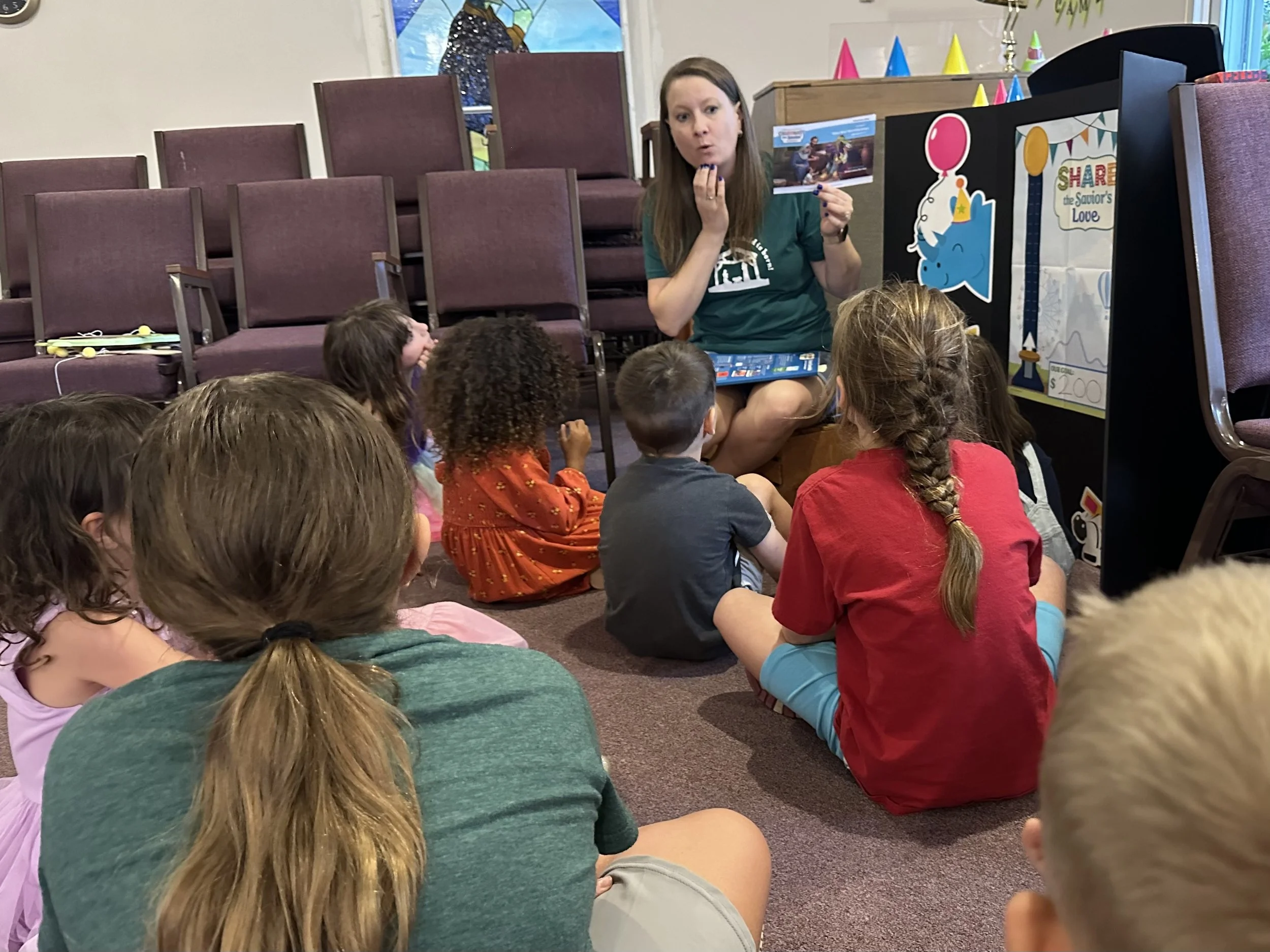



































![[Sunday] Fear God? - Say What - Jesus Said What?](https://images.squarespace-cdn.com/content/v1/5852f18a20099e30cd2c01dc/1717767889762-DNIYVDIL86LUZXG9LKFR/SW+24+3a.jpg)







![[Sunday] Home Easter - Kingdom Way - Matthew 28](https://images.squarespace-cdn.com/content/v1/5852f18a20099e30cd2c01dc/1744896317374-8FNA1Q6P0B6FQ7JRW7GP/KW+24a.jpg)


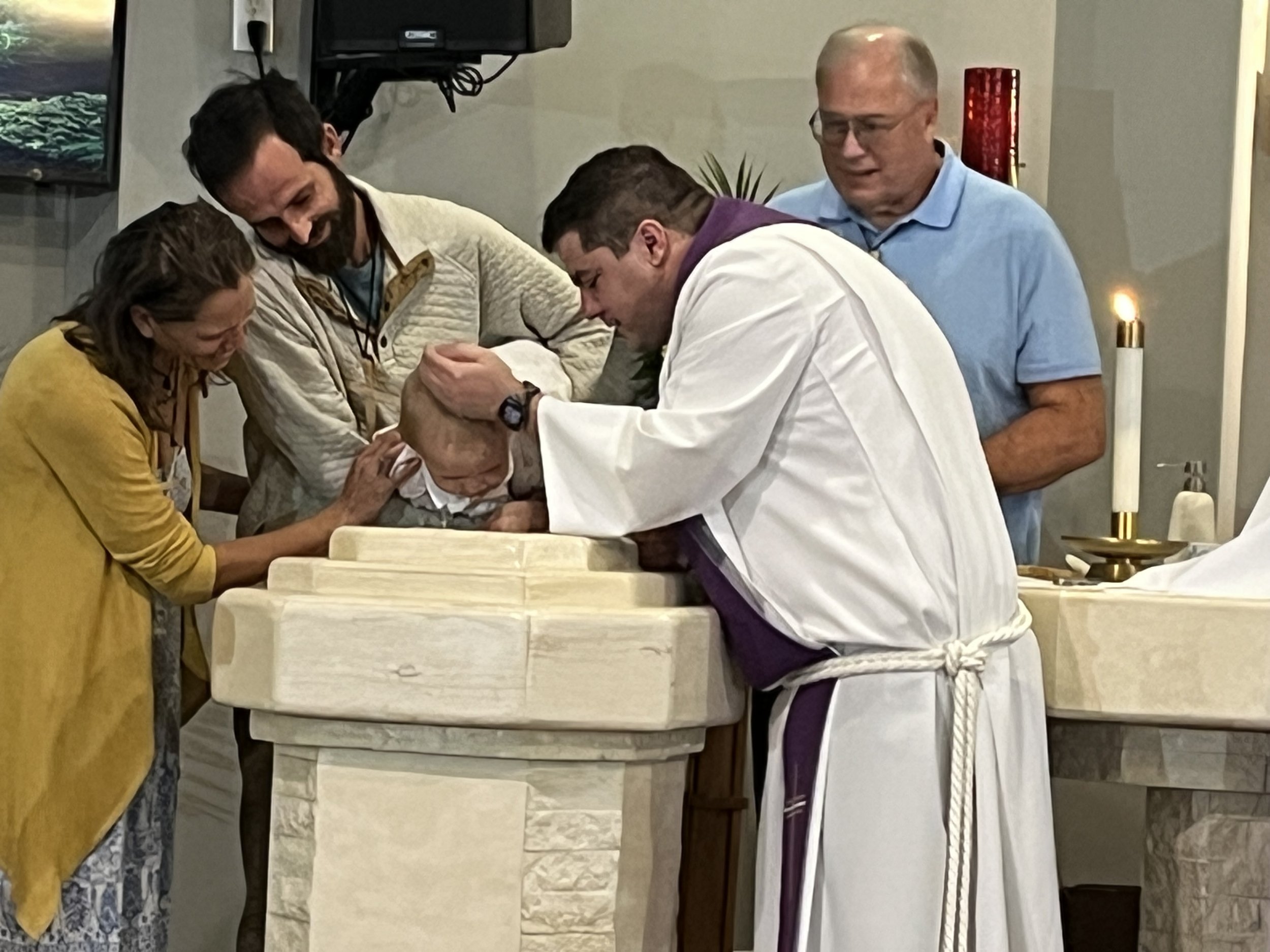


























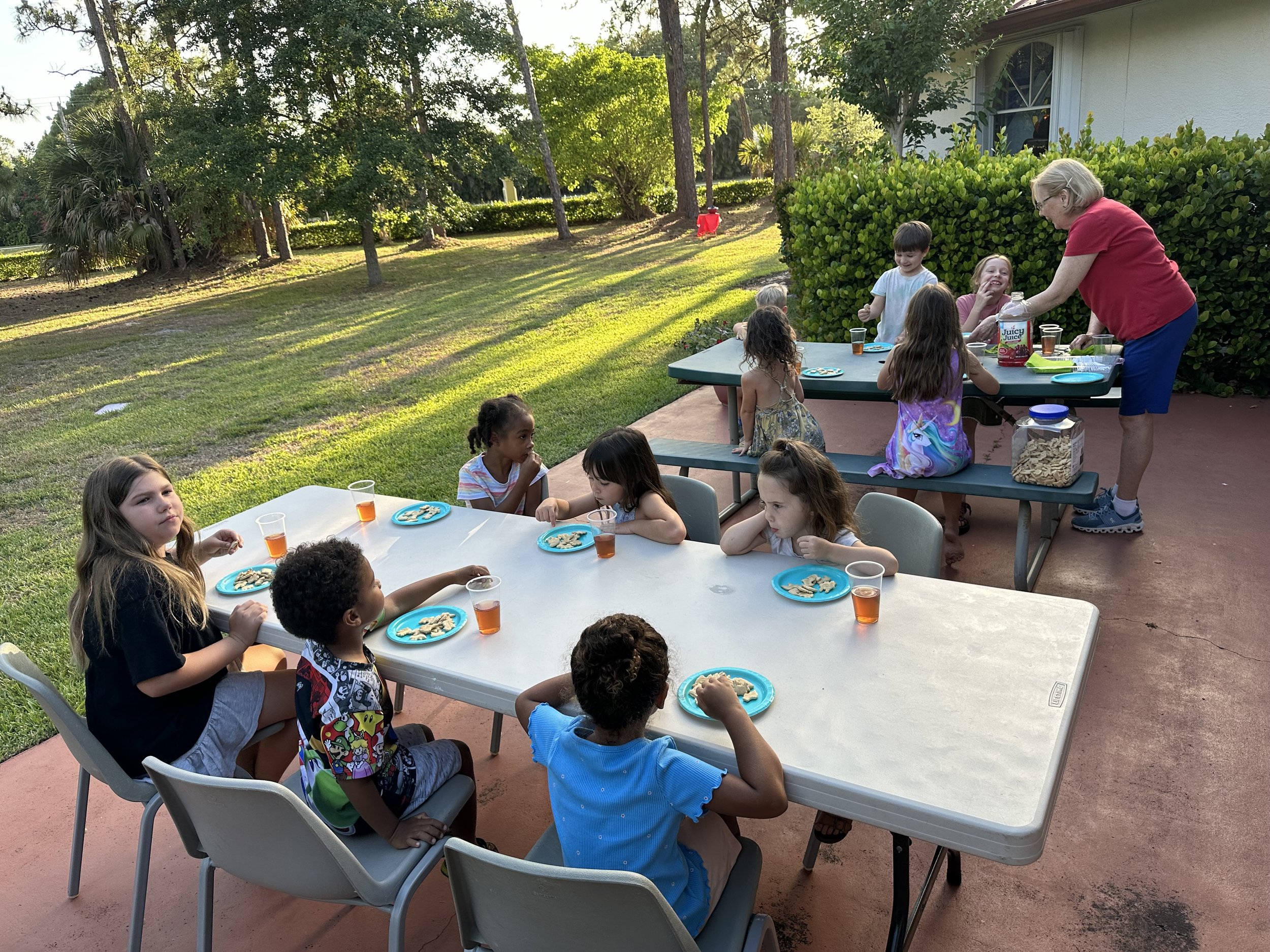







![[Sunday] Buy Friends? - Say What - Jesus Said What?](https://images.squarespace-cdn.com/content/v1/5852f18a20099e30cd2c01dc/1717165953705-YBVDIRY0Q3J115JZ0QUV/SW+24+2a.jpg)

![[Sunday] Backwards Beautiful - Kingdom Way - Matthew 28](https://images.squarespace-cdn.com/content/v1/5852f18a20099e30cd2c01dc/1745552165848-WAAACA58WKWYMWY08VZZ/KW+25a.jpg)




















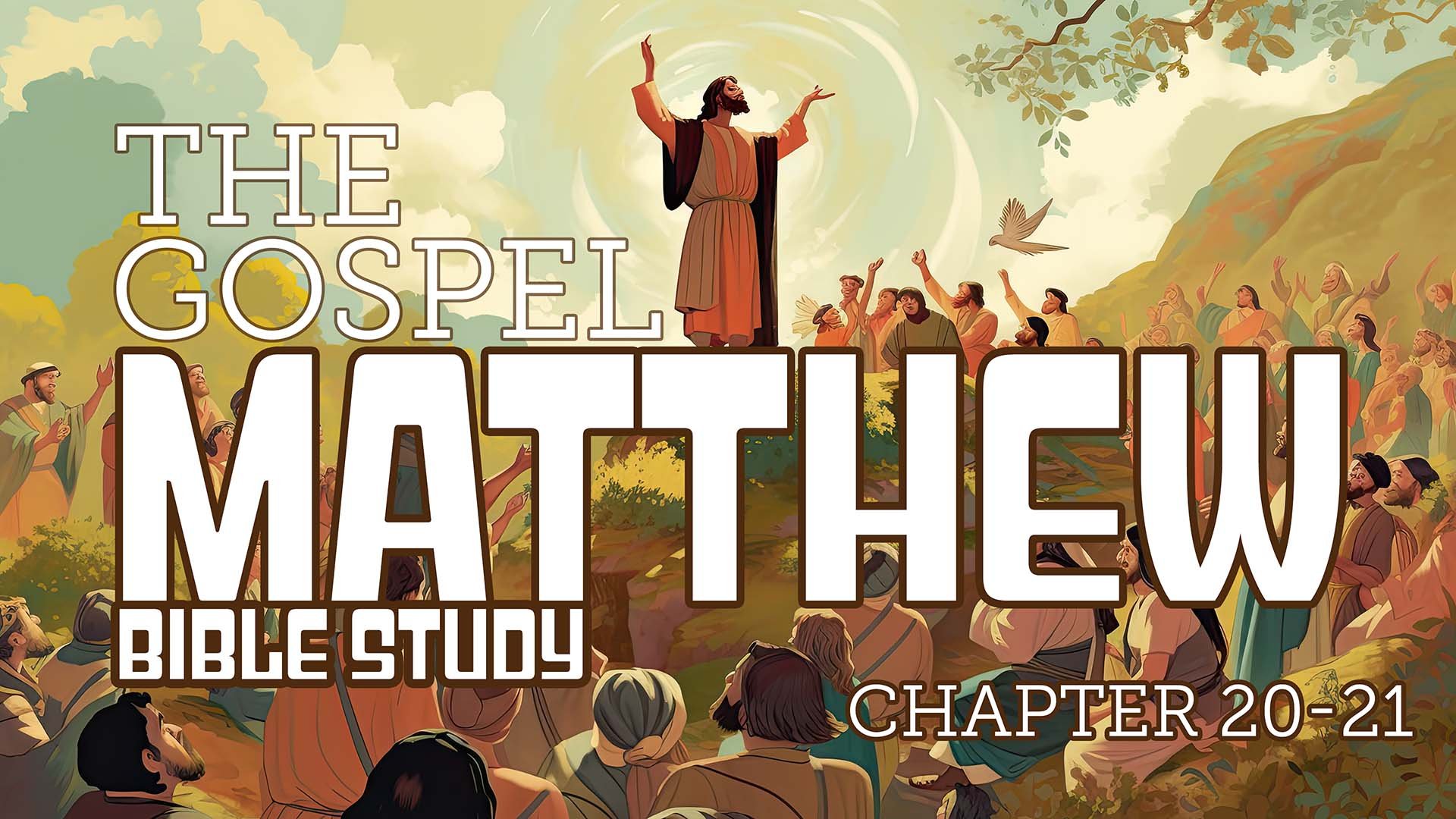
![[Sunday] Hate Family? - Say What - Jesus Said What?](https://images.squarespace-cdn.com/content/v1/5852f18a20099e30cd2c01dc/1716558016153-4DX3JRDJC00B7ZON7EQO/SW+24+1a.jpg)


![[Sunday] Be Perfect? - Say What - Jesus Said What?](https://images.squarespace-cdn.com/content/v1/5852f18a20099e30cd2c01dc/1718025144062-RYECA9GS40X3IWZBPN7O/SW+24+4a.jpg)


















![[Sunday] Don't Look Away - His Eyes The Book of Judges](https://images.squarespace-cdn.com/content/v1/5852f18a20099e30cd2c01dc/1715965528715-74DR710VROCPYUAR45XM/His+Eyes+7a.jpg)
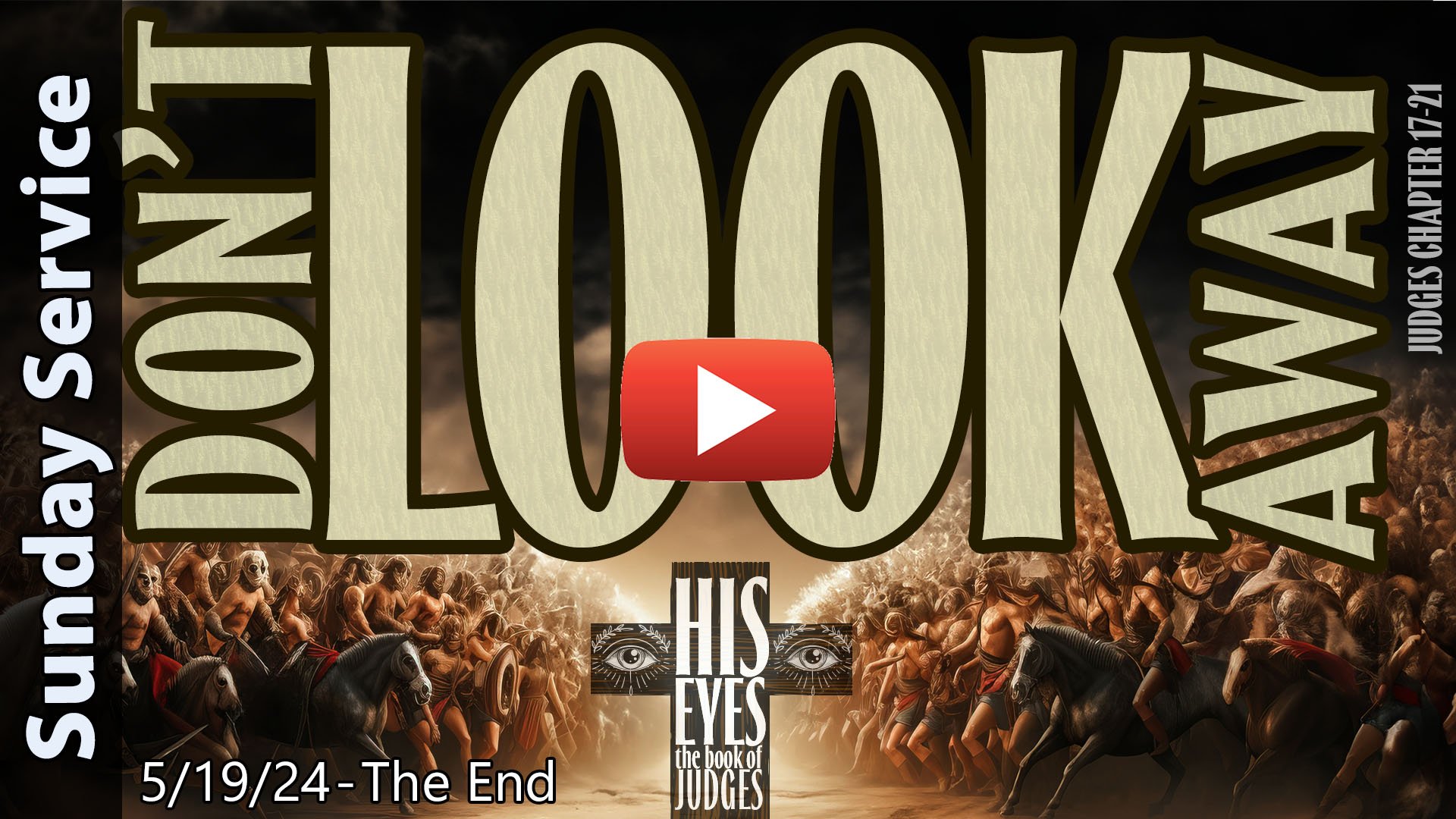



![[Sunday] Blind Samson - His Eyes The Book of Judges](https://images.squarespace-cdn.com/content/v1/5852f18a20099e30cd2c01dc/1715371342786-ROUR4CT41NASJ0EG2CFA/His+Eyes+6a.jpg)

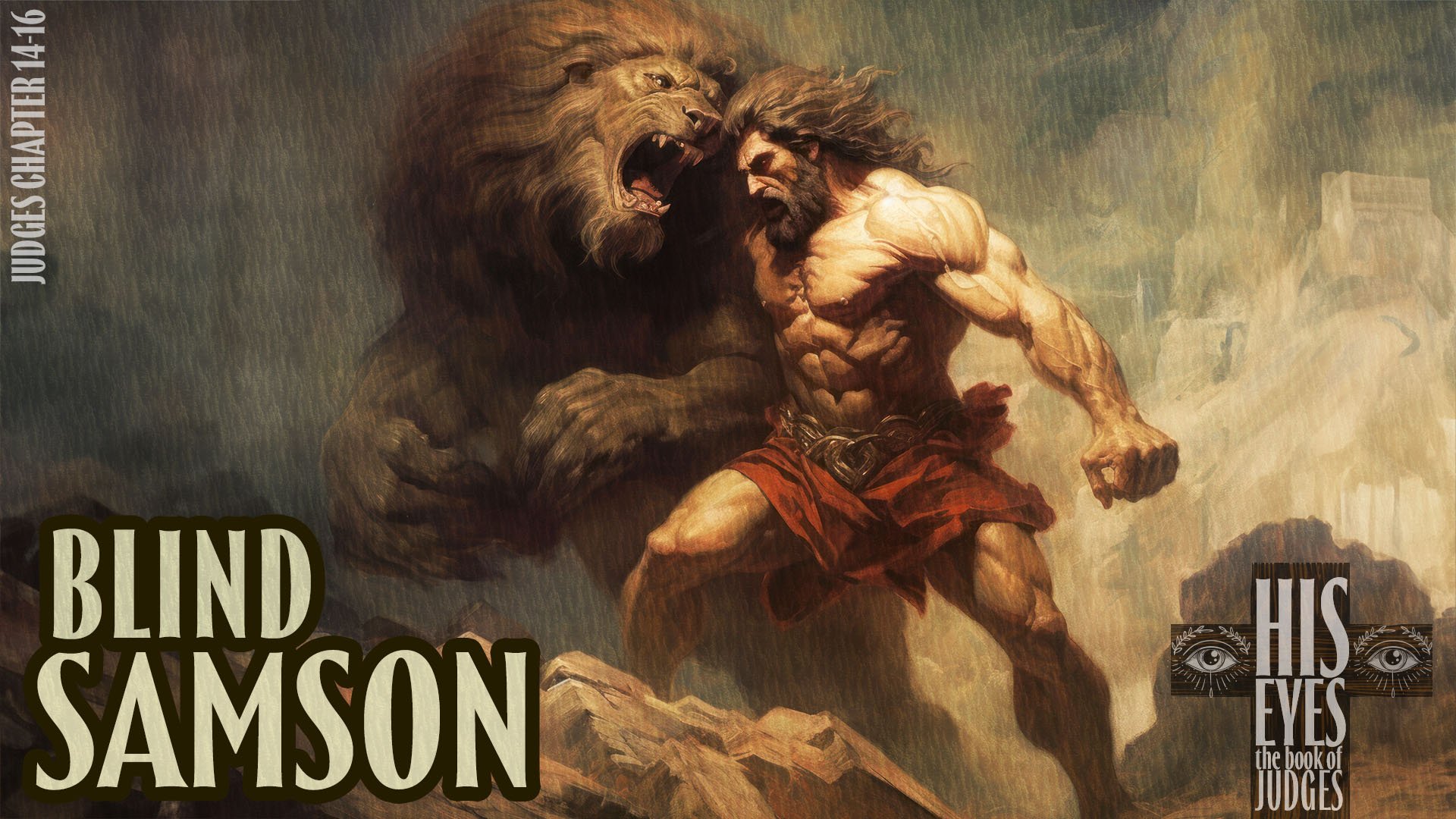
A call to make disciples, rooted in Jesus's enduring love, empowers even the doubting to share a love that defines the very heart of the church. Matthew Chapter 28